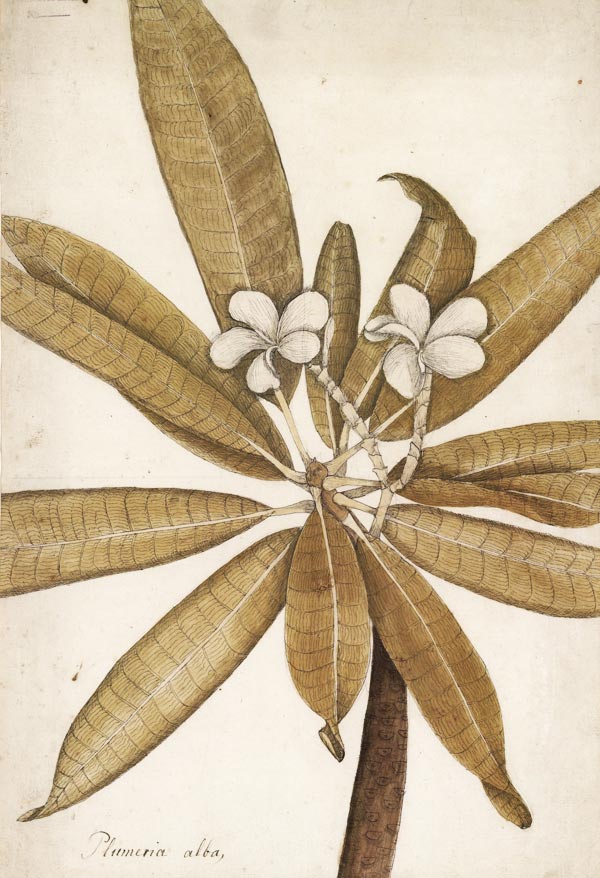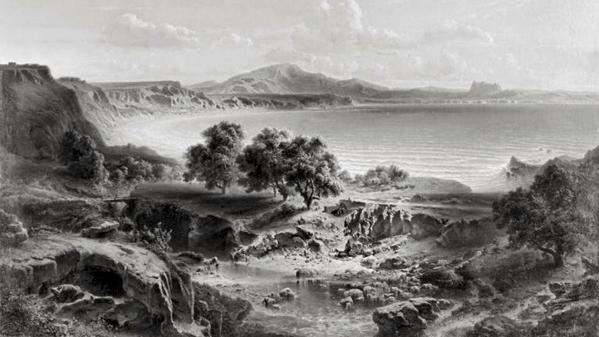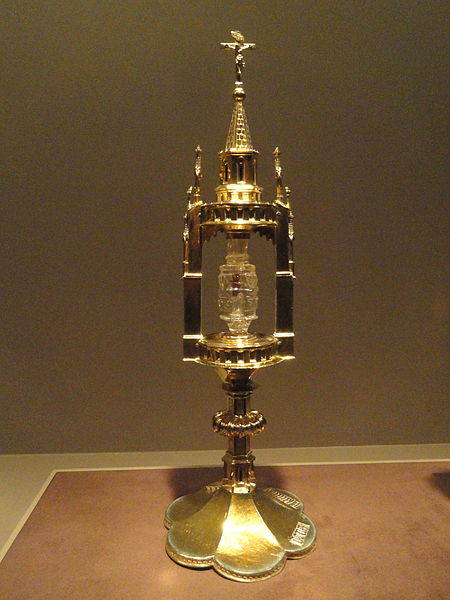Ongoing events have weakened irrevocably the triumphalist message that Germany had hoped to send with its November agreement concerning the Gurlitt bequest to the Kunstmuseum Bern, and the January opening of the Deutsches Zentrum für Kulturgutverluste (the German Center for Lost Cultural Property). Instead, the self-congratulatory air that surrounded those events is starting to look like a premature "Mission Accomplished" moment.
Gurlitt and the State of Restitution: Triumphalist Moment Looking More Like Premature "Mission Accomplished"
Topics: Cornelius Gurlitt, Holocaust Art Restitution Project, Uta Werner, Adolph von Menzel, Nazi-looted art, Gurlitt Collection, Seated Woman, Sachsenhausen, Matisse, Saturday Night Live, George Eduard Behrens, Advisory Commission, Hamburg, L. Behrens & Söhne, Gurlitt, German Cultural Minister, Der Spiegel, Hjalmar Schacht, German Center for Lost Cultural Property, Minister of Economics, Marc Masurovsky, Washington Principles, Kristallnacht, Monika Grütters, Great Depression, Deutsches Zentrum für Kulturgutverluste, Pariser Wochentag, Paris Weekday, Welfenschatz, Limbach Commission, Heidelberg
Vienna Natural History Museum Restitutes Botanical Drawings to Nazi Victims' Heirs, Acknowledges the Too-Often-Ignored Reality of Persecution and Coerced Sales
Vienna’s Natural History Museum (Naturhistorisches Museum) has restituted 177 botanical drawings and prints to the heirs of Dr. Ernst Moritz Kronfeld. The restitution, while somewhat delayed following a 2011 recommendation by Austria’s Advisory Council under the country’s Law for the Restitution of Artworks from the Austrian National Museums (Bundesgesetz über die Rückgabe von Kunstgegenstände aus den Österreichischen Bundesmuseen), highlights the increasing sophistication of that Advisory Council, particularly compared to recent steps backward by the Limbach Commission in Germany. Austria, once a lightening rod for criticism about confronting wartime and Nazi provenance issues, returned these drawings because of the clear problems with trying to portray any 1941 conveyance by a Viennese Jew as an arms’ length transaction—even without direct evidence of coercion. Just as importantly, it brushed away the defense that the drawings had been acquired in good faith as an excuse to continued possession, a dramatic change from the perspective usually taken by civil law countries.
Topics: Theresienstadt, Lvov, Nationalbibliothek, Galicia, Law for the Restitution of Artworks from the Austr, Germany, Nuremberg, Nazi Victims, Treblinka, Dr. Rudolf Engel, Naturhistorisches Museum, Henry David Thoreau, Hermann Goring, Hitler Youth, Mario Lanzer, Gauleiter, Dr. Ernst Moritz Kronfeld, National Library, Portrait of Amalie Zuckerkandl, Bundesgesetz über die Rückgabe von Kunstgegenständ, Restitution, Clara Levy, Hapsburg, Luxembourg, Vienna Natural History Museum, Ryk van der Schot, Empress Maria Theresia, World War II, The Three Graces, Franz Stefan von Lothringen, Lemberg, Ukraine, Nikolaus Joseph von Jacquinn, Rosalia Kronfeld, Austro-Hungarian empire, Drei Grazien, Lovis Corinth, Museums, Israeli Cultural Society, Austria’s Advisory Council, Gustav Klimt, Schönbrunn, Vienna, Anschluss, Welfenschatz, Baldur von Schirach, Limbach Commission
Limbach Commission Rules Against Claimants to Restitution of “Three Graces” by Lovis Corinth in Unpersuasive Opinion
The German Advisory Commission for the Return of Cultural Property Seized as a Result of Nazi Persecution, Especially Jewish Property (Beratende Kommission) has issued its latest decision concerning allegedly Nazi-looted art in German museums. For the second case in a row after the widely (and wisely) derided opinion not to restitute the Welfenschatz or Guelph Treasure at the Stiftung Preussischer Kulturbesitz in Berlin, the commission (known for its presiding member, former German Supreme Constitutional Court judge Jutta Limbach) has recommended against restitution, this time over the claim by heirs of Clara Levy to The Three Graces (Drei Grazien) by Lovis Corinth (1902/1904). The decision (available only in German) is riddled with poor logic and basic historical errors. In short, while it may be that the painting was indeed delivered to Clara Levy’s daughter in the United States at Clark’s express instruction, that is far less clear than the commission states, and its decision further makes a number of assumptions about the circumstances of Jews in occupied or about-to-be occupied territories that undermine its credibility considerably.
Topics: Berlin, Else Bergmann, Schleifmühle, Hildebrand Gurlitt, Cornelius Gurlitt, Ludwig Levy, Fritz Levy, Rita Hubbard, Germany, Nazi-looted art, bill of lading, Especially Jewish Property, Buchholz Gallery, Madame Soler, German Advisory Commission for the Return of Cultu, San Francisco, Entartete Kunst, Beratende Kommission, Stiftung Preussischer Kulturbesitz, FSIA, Curt Valentin, expropriation exception”, Gurlitt, Restitution, Max Huggler, Mendelssohn-Bartholdy, Clara Levy, Sigfried Rosengart, Luxembourg, Henry Zacharias, Compagnie Generale Transatlantique Hol Lesquette, World War II, Foreign Sovereign Immunities, Pinakothek der Moderne, degenerate art, beschlagnahmte Kunst, Jutta Limbach, Kunstmuseum Bern, Drei Grazien, Pablo Picasso, Lovis Corinth, Museums, Three Graces, Bavarian State Painting Collections, Federal Republic of Germany, Paula Levy, Kurt Buchholz, Welfenschatz, Limbach Commission, New York, Bayerische Staatsgemäldesammlungen
Bavarian State Paintings Collection in the News Again, May Face Claims from Eva Braun Heirs
Quite by coincidence, two stories we have covered in the last few days have centered around the claims by the heirs of Paul von Mendelssohn Bartholdy, a Jewish banker and art collector who was the target of Nazi persecution before he died in 1935: Julius Schoeps, Edelgard von Lavergne-Peguilhen, and Florence Kesselstatt. Another common thread has been the Bavarian State Paintings Collection (the Bayerische Staatsgemäldesammlung), which is in the news again for possible claims, but this time from heirs of quite a different sort.
Topics: Paul von Mendelssohn Bartholdy, Fritz Bamberger, Focus, Florence Kesselstatt, Karl Blechen, Karl Ernst Baumann, Julius Schoeps, Dr Alexander Lewin, Germany, Anselm Feuerbach, Hans Sachs, German Advisory Commission for the Return of Cultu, Gurlitt case, Edelgard von Lavergne-Peguilhen, Julius and Clara Freund, Eva Braun, Nürnberger Institut, Johann J. August von der Embde, Stiftung Preussischer Kulturbesitz, 'Stürmer-Bibliothek', Wilhelm Leibl, Jim Tobias, Portrait der Familie von Dithfurth, Restitution, Bavarian State Paintings Collection, Bayerische Staatsgemäldesammlung, Der Spiegel, World War II, Peasant Girl without a Hat and with a White Headcl, Pinakothek der Moderne, Prussian Cultural Heritage Foundation, Austria, Andrea Bambi Mountain Landscape on the Spanish Coa, Jutta Limbach, Washington Principles, Der Stürmer, Welfenschatz, Limbach Commission
Limbach Advisory Commission Recommends Against German Restitution of “Guelph Treasure,” Focuses on Terms of 1929 Agreement for Intended Sale
One of the issues exposed and exacerbated by the ongoing Gurlitt collection stalemate is the question of Germany’s restitution procedures with respect to art. As the Bavarian legislative proposal to abolish the statute of limitations for claims against bad-faith acquirers is considered by the Bundestag, the “German Advisory Commission for the Return of Cultural Property Seized as a Result of Nazi Persecution, Especially Jewish Property” has issued a decision over what has become known as the “Guelph Treasure” (Welfenschatz) in the collection of the Stiftung Preussischer Kulturbesitz (SPK), the Prussian Cultural Heritage Foundation. The March 20, 2014 opinion (available, so far as I know, only in German at this point at www.lostart.de) underscores the issues around claims of sales under duress, and the appropriate present-day procedural remedy. Readers should also brush up on their medieval German history to keep up.
Topics: Holy Roman Emperor Otto IV, German Supreme Commercial Court, Holy Roman Empire, Bundeshandelsgericht, German Supreme Constitutional Court, Z.M. Hackenbroch, Karl Blechen, Duchy of Brunswick and Lüneburg, Niedersachsen, Karl Ernst Baumann, Act of State, Kingdom of Hanover. Königreich Hannover, Dr Alexander Lewin, Prussia, Lower Saxony, Anselm Feuerbach, Gurlitt Collection, Foreign Sovereign Immunities Act, Preussen, Hans Sachs, German Advisory Commission for the Return of Cultu, Hessen, Fogg Art Museum, Congress of Vienna, Julius and Clara Freund, Kurhannover, Dresdner Bank, Hermann Goring, Austrian Supreme Court, Johann J. August von der Embde, House of Welf, Stiftung Preussischer Kulturbesitz, Wilhelm Leibl, Portrait of Amalie Zuckerkandl, Braunschweig-Lüneburg, Harvard, Portrait der Familie von Dithfurth, Gurlitt, Restitution, George I, J.S. Goldschmidt, World War II, Peasant Girl without a Hat and with a White Headcl, Queen Victoria, Prussian Cultural Heritage Foundation, Art Institute of Chicago, Kurfürsten, Jutta Limbach, www.lostart.de, Soviet Union, Gustav Klimt, Bundesverfassungsgericht, Welfenschatz, Limbach Commission, I. Rosenbaum, Electors






